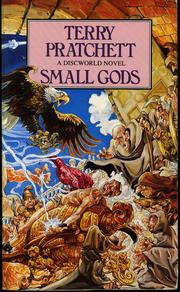Privilege, which just means private law. Two types of people laugh at the law: those that break it and those that make it.
— Night Watch (Discworld, #29; City Watch, #6) by Terry Pratchett (Page 46)
"Why, yes, I am still upset that the Library of Alexandria burnt down"
This link opens in a pop-up window
83% complete! Murf has read 20 of 24 books.
Privilege, which just means private law. Two types of people laugh at the law: those that break it and those that make it.
— Night Watch (Discworld, #29; City Watch, #6) by Terry Pratchett (Page 46)
‘When Mister Safety Catch Is Not On, Mister Crossbow Is Not Your Friend,’ recited Detritus, saluting.
— Night Watch (Discworld, #29; City Watch, #6) by Terry Pratchett (Page 325)
Grasp the nettle firmly and all that. He had, as a child, grasped nettles firmly, and had sometimes had a hand the size of a small pig.
— Night Watch (Discworld, #29; City Watch, #6) by Terry Pratchett (Page 262)

Night Watch is a fantasy novel by British writer Terry Pratchett, the 29th book in his Discworld series, and the …

Feet of Clay is a fantasy novel by British writer Terry Pratchett, the nineteenth book in the Discworld series, published …

Feet of Clay is a fantasy novel by British writer Terry Pratchett, the nineteenth book in the Discworld series, published …

Small Gods is the thirteenth of Terry Pratchett's Discworld novels, published in 1992. It tells the origin of the god …